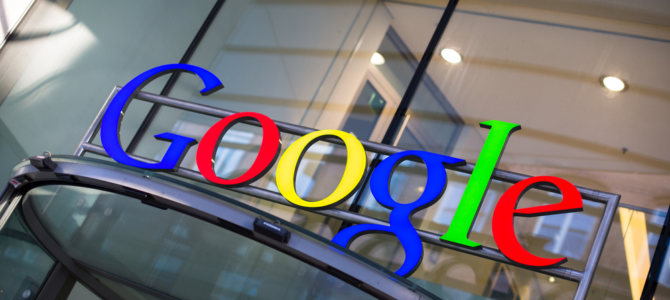
The unwinding of public support for tech companies generally, and especially the giants, has come with surprising speed and is acknowledged these days by just about everybody. Indeed, the consensus view, shared even by some tech CEOs, is that government should regulate them.
But there are two problems with this approach: Whatever else they may do, such regulations would likely have the practical effect of protecting these companies from competition, and insofar as these outfits traffic in constitutionally protected speech, regulations would undermine that speech online, and perhaps in the courts.
A better approach would be for these companies to regulate themselves, but to do so they would first have to show they understand what is upsetting people on the right, left, and all points in between. Though popular culture is clearly controlled by liberals and Democrats, and therefore speaks loudest about technology from their perspective, the view from here is that in fact it is Republicans and conservatives who pose the greater political threat and whose goodwill, therefore, is the more urgent task.
So what is it that has alienated people on the center-right? At bottom it is the industry’s embrace of all things PC, an affinity that is exhibited in their political bias, transparent virtue signaling, and sympathy for identity politics. Let’s look at a few of these things among the five biggest tech companies — Facebook, Amazon, Apple, Netflix and Google — one at a time:
Facebook: The most frequent conservative complaint against Facebook has been that it favors liberal and progressive stories, both in its “trending topics” and among its employees. This matter reached a head in 2016, with the company admitting that certain “rogue employees” may have deliberately downplayed conservative issues.
Facing withering criticism from people of all political stripes, Facebook’s CEO, Mark Zuckerberg, recently opined that maybe the government should regulate the company.
Amazon: Among the least remarked but nevertheless most instructive decisions made by Jeff Bezos, the CEO of Amazon, was his hire in early 2015 of Jay Carney, president Obama’s former press secretary, as head of Amazon’s Washington office. As with all companies, the head of the DC office oversees the staff and serves as the figurehead of the company in all of its dealings with congress, the White House, and the independent and executive branch agencies.
Far more importantly, it is Bezos who personally owns the Washington Post, an influential newspaper that, along with the New York Times, has badly abused journalistic convention about the separation of fact and opinion in its overwhelmingly negative coverage of president Trump.
Finally, and redolent of the company’s virtue signaling, there is the recent construction, at Amazon’s Seattle headquarters, of a “rain forest” for employees. Why people who live in Seattle, which is itself a rain forest, would be inspired by this was almost certainly not a factor in why Amazon built the thing.
Apple: If one deliberately wanted to offend Republicans and conservatives, a good way to start would be to invite Al Gore to serve on the company’s Board. Steve Jobs did just that, and Gore remains a director of the company to this day.
A more recent event concerns Apple’s reaction to Trump’s poor words following the Charlottesville rally organized by far right extremist groups. Avowedly put off by the president’s faint criticism of the rally organizers, Apple awarded a $1 million contribution, for the cause of fighting “hate,” to the Southern Poverty Law Center, an organization that has been portrayed by virtually every right-of-center organization in America (as well as in media like Politico) as itself a hate group, and a money grubbing scam operation to boot.
Netflix: No company has caused more heartburn for cable TV and Hollywood than Netflix. And if this were all they’d done they might actually be favored by conservatives. But it isn’t all they’ve done. They’ve also recently added to their board Susan Rice, Obama’s UN ambassador who, immediately after the killing of the American ambassador in Benghazi, said on national TV that the attack was in response to an obscure anti-Muslim YouTube video, an absurd and transparent lie.
Not content to brand himself by providing a board seat to one such as Rice, Reed Hastings, the company’s CEO, reportedly attempted to get Peter Thiel removed from the Facebook board for the latter’s support of president Trump.
Google (Alphabet): The company’s ties to the Obama administration, something that may well have influenced the FTC’s kid-glove anti-trust investigation of the company in 2013, has been well documented. From their extraordinarily uniform political contributions, to their hire of Al Gore as a consultant, Google has been anything but discreet about its political preferences.
The latest evidence of this is the matter concerning a former Google engineer named James Damore. Damore wrote an internal memo titled “Google’s Ideological Echo Chamber,” in which he challenged the company’s diversity policy. After being fired for his memo, Damore filed in January of this year a class action lawsuit accusing the company of discrimination against conservatives, white people, and men. The case has attracted a mountain of publicity, and conservative groups see it as evidence of Google’s liberal bias.
It goes without saying that this list omits the large number of grievances that are alleged by groups and individuals who are neither conservative nor Republican. These include anticompetitive effects, deleterious impact on the economy and the working class, the corrosive effects of social media on children, and most importantly, privacy. Tech companies are also accused of destroying not just the commercial lifeblood of media companies (advertising) but also of journalism itself, an accusation that recently attracted support from Jeff Zucker, the head of CNN (and the last guy in the world from whom anyone should take lessons in journalism.)
As suggested at the outset, the plight of the tech companies appears headed for policy venues, whether it’s Congress or the regulatory agencies like the FTC or FCC, and it’s because of that state of play that the Googles and Facebooks of the world should move to clean up their profiles among Republicans and conservatives. Democrats and liberals are aligning against techland too, but Republicans have the majorities in congress and the federal agencies and are, therefore, in a position to act without the support of the Democrats.
There are issues that are of concern to people of both parties, and neither party, like privacy. And in the absence of some real reform of their data mining practices, companies like Google and Facebook look to be in a protracted and losing fight on the issue. But for liberals and Democrats the beating heart of their passion for the privacy issue lies in their embrace of the Trump-Russia collusion myth, and their hope that things like the puny Russian ads on Facebook and the Cambridge Analytica brouhaha will further their campaign against the president.









